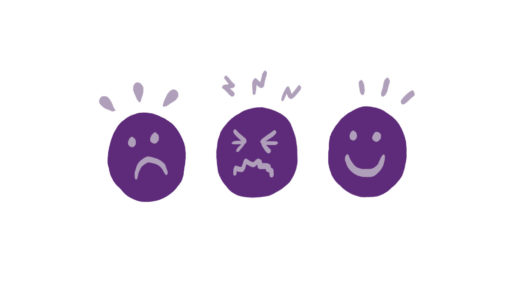Guilt and shame
Shame is a normal and necessary emotion which generally serves humanity very well. If we feel embarrassed about doing something we know is wrong, like getting caught dropping litter, we are less likely to do it again.
However if you are feeling ashamed about an unwanted sexual experience. You are feeling the shame which the perpetrator(s) should be feeling. They are the ones who knew it was wrong and did it anyway. You are not to blame so you don’t need to feel ashamed.
This is easy enough to say but how do you change your feelings? Well it is possible once you understand how feelings work and develop ways to help yourself to feel different. Often this starts with challenging the thoughts you have about what happened to you.
Here are some examples of thoughts you may have which can lead to a feeling of shame.
You may feel confused about the part you played in events, particularly if, due to your body’s automatic physiological response to being touched a certain way, you developed an erection or ejaculated.
It’s key to remember that your abuser is responsible for instigating what happened to cause that reaction, and your body’s reflexes are not your choice. Erection and ejaculation is a biological response to physical stimulation and not something you can fully control.
Even if you did feel pleasure at some points during the experience. This doesn’t mean that you encouraged or deserved the unwanted aspects of what happened to you. It means that your abuser manipulated you.
Some perpetrators will deliberately manipulate a boy or man to develop an erection, then use this as false evidence that the abuse was ‘wanted’. We cannot always control how our body reacts, especially in stressful situations.
Some men develop an erection as a response to remembered fear such as when they recall the abuse or have a flashback.
If this has happened to you it is an unfortunate and confusing response based on your body’s physiological responses and you can learn to treat it like just another symptom of a flashback.
It is quite normal to think about what you could have done differently. However, there is a huge difference between wishing you could have done something to stop the abuse, and being responsible for it at the time.
If you were abused by someone you know you may have had an emotional connection with them, or your abuser may have deliberately developed this connection in order to abuse you.
The process of developing a connection with the intent of sexual abuse, commonly referred to as ‘grooming’, typically involves perpetrators identifying what is lacking in the person’s life and then meeting those unmet needs. This could be attention, physical care and touch, money, or anything else that you needed or desired at the time.
It is completely normal—and crucial for survival—that people feel drawn to people who meet their needs. Abusers deliberately manipulate this to win trust. They may have also groomed those around you to make it harder for you to tell anyone. They did this to prevent getting caught. This emotional manipulation can lead to you feeling like you chose to go along with it.
You didn’t know what these tactics were at the time. You didn’t take certain actions at the time, because as part of their abuse they used various tactics to ensure you didn’t. That was not your choice. It was part of the abuse.
Take a look at the Context Exercise or the film about Understanding Emotions which can help you to challenge your thoughts around guilt and blame.




